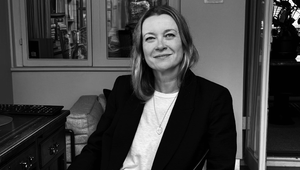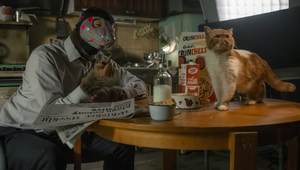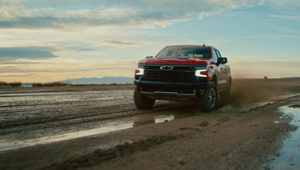
Why You Should Rethink the Category Your Brand is In

In today’s crowded marketplace, creating relevance and differentiation for your brand or organisation requires you to completely rethink the category it competes in. Doing so calls for a completely new perspective and a great amount of courage. And so, dare to ask yourself not, “What business are you in?” but rather, “What business could and should you be in?”
You see, most marketers view their brands as competing in a narrowly defined space. McDonald’s is in the fast-food business, Tesla is in the car business and Evian is in the water business. It seems obvious a food product should be in a food category, and water should be in drinks. But what if companies that challenged this notion were able to successfully redefine foods and drinks as we know them?
Focus the Message On What Customers Buy, Not What You Sell
As we’ve heard many times before, looking at your brand’s category in that narrow way is a mistake. You need to think of it more broadly; see the bigger picture. We’ve often heard the classic example of the 19th century railroad industry claiming it was in the railroad business. However, in reality, it was in the transportation business. So when other modes of transportation came around in the 20th century, the industry did not see them as competitors; it just saw its direct competitors in the railroad business and lost. Failing to define itself by what its customers were buying instead of by what it was selling ultimately led to the industry’s demise. Had it answered the question differently, the story would have been very different.
Think Differently About Product Categories
Ancestry is an example of a brand that has truly understood and adapted to this thinking. When Droga5 was tasked with launching a marketing campaign for the brand that would generate more demand for its DNA testing product, they could have easily looked at Ancestry as a product in the genealogy category. Or they could have told people that getting more information on their family’s past would enable them to celebrate their family’s history. But that’s old news - people already knew that. That’s why - when they got to the truth of the product and realised that when people learn about their past, the knowledge reshapes the way they view their present and inspires them to change what they do in the future - they took a completely different approach. Instead of presenting Ancestry as a historical data company in the business of genealogy, it positioned itself as a lifestyle product that is in the business of inspiration. It wasn’t about making genealogy look cool; it was about getting the product in a different category. Once Ancestry changed the frame of reference, it wasn’t competing with other genealogy brands but rather with lifestyle brands, such as travel or athletic companies. Droga5’s 'Declaration Descendants' campaign completely changed the way people view and use genealogy products. Today, the demand for these genealogy products is booming.
Hone In on Purpose, Not Product
More recently, the water-bottle company Bkr implemented a similar strategy. If there’s one category that’s extremely crowded, that’d be bottled water. Not only are there an excessive amount of competitors in the space but because they’re trying to compete on a product that’s essentially a commodity that falls from the air, differentiation is extremely hard. At the same time, plastic bottles are also incredibly wasteful, and so many brands are offering reusable bottles that answer consumers’ demands for more eco-friendly solutions. But with plenty of reusable bottles out there, how can a new market entrant even stand a chance? By rethinking the business they compete in. Instead of presenting it as a water bottle, Bkr, drawing on the truism that water makes you beautiful, has marketed its product as a beauty product. It’s not about fabricating falsehoods about your brand; it’s about looking at your product truths from a completely different angle and connecting them to deeply human truths that connect with people in a different way. Would I ever pay $55 for a water bottle? Never! But would I pay $55 for a beauty product? Maybe, if it gives me more clear and beautiful skin, which drinking water essentially does. That’s why Bkr, with prices ranging from $28 to $185 per bottle, has already sold more than 1.5 million bottles since it launched in 2011.
Overall, as marketers, we need to challenge ourselves to look beyond the obvious adjacent categories and start questioning the universes within which we perceive brands to exist. Rethinking your business isn't just a way to keep it relevant, it's ultimately what can make your brand stand out from a very saturated crowd.
Julie Lubbers is strategist, Droga5















